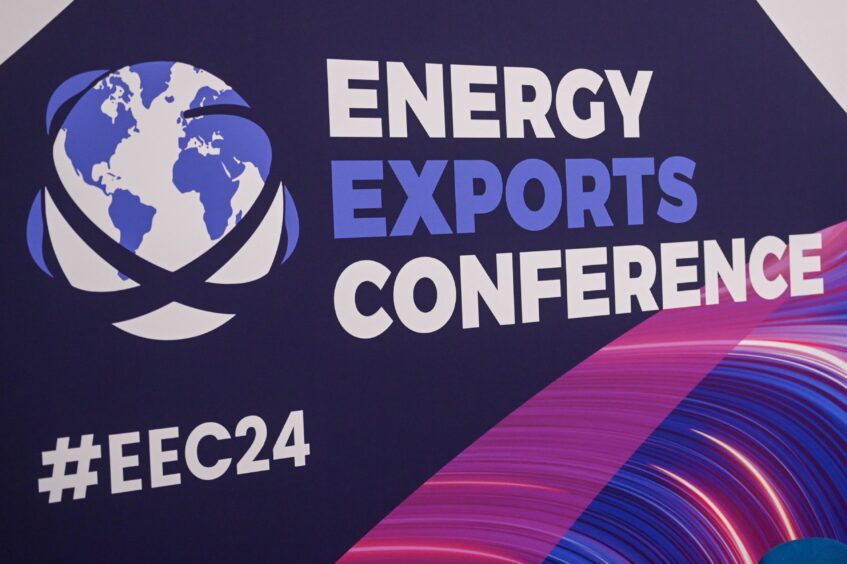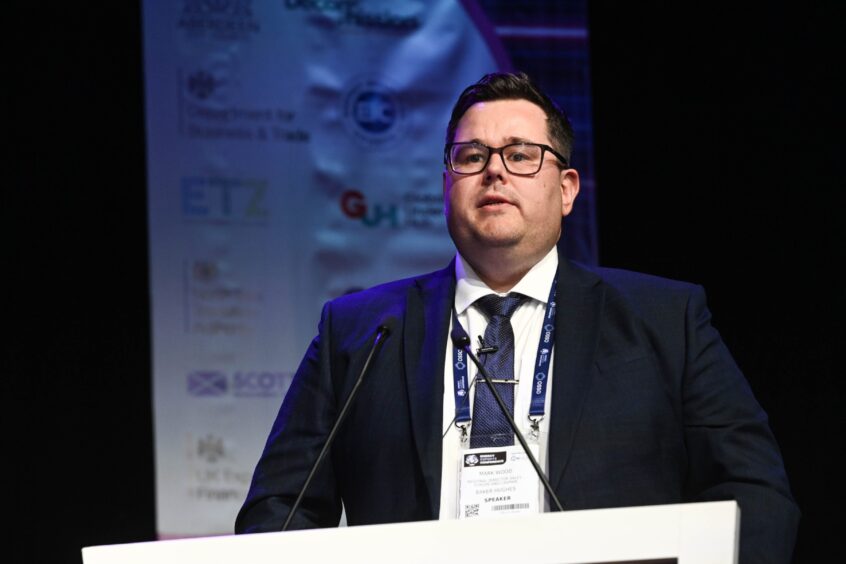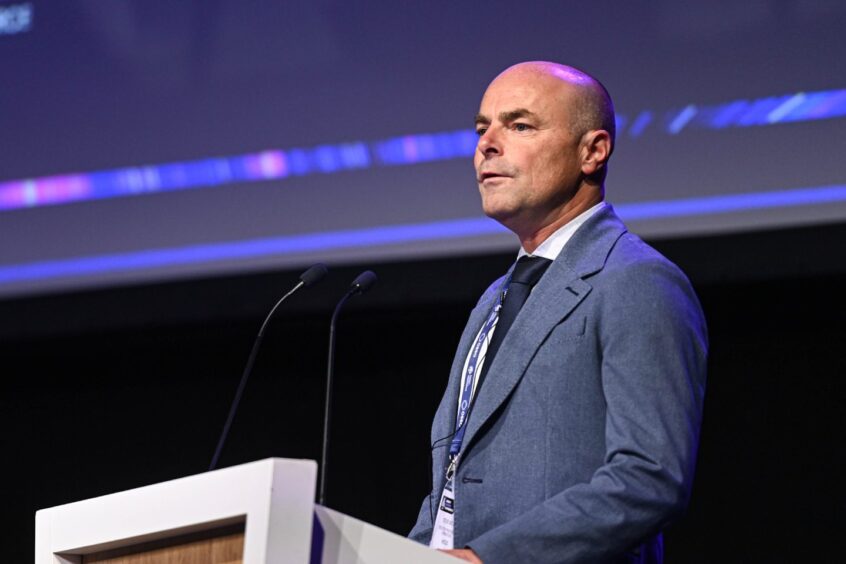
Energy firms keen to explore export opportunities faced some “hard truths” at an event in Aberdeen.
The Energy Exports Conference welcomed a thousand delegates in its first day at the P&J Live on Tuesday.
On a panel discussion Mark Wood, regional director sales – Europe and Caspian for Baker Hughes warned that the UK risks being “left behind” in a race to develop a low carbon energy system and that it has moved manufacturing capacity away from the UK as a result of the windfall tax.
He and other panel speakers, including Steve Nicol, executive president of operations at Wood took aim highlighted highlighted the challenges to investment in low carbon energy.
Windfall tax and low carbon energy
Mr Wood from Baker Hughes said low carbon technologies such as carbon capture and storage (CCS) and other renewables were “at the forefront of everything we do.”
“It is needed. And we need to accelerate purely because the projects that are sanctioned today there is not enough to get to that net zero pathway based on the time line and the projects that are sanctioned today.
“As these projects develop and as you get more project in the pipeline and online, the economies of scale will grow.
“The hard truth is that if we don’t do it now, we will be reliant on fossil fuels.
“We talked about fossil fuels still being needed in future and part of the energy mix and they 100% will be but we are going to get there at a slower pace if we don’t accelerate.”
Mr Wood admitted the firm which has 5,000 employees in the UK including in Aberdeen and Montrose across 30 facilities had moved some of its manufacturing abroad to Singapore and Dubai as a result of the UK government’s Energy Profits Levy (EPL).
He said the EPL was the “elephant in the room”.
“We have over 3,000 suppliers in this country alone with an annual spend of over £300million
“We have had to move some manufacturing abroad in our oil field services business to the likes of Singapore and Dubai.
“However, we remain as one of the only large OEMs for subsea equipment in the UK.”
He added: “It makes it difficult to compete on the global landscape. As others move to lower cost countries international companies tend to care less about location of manufacturing and more about price, demonstrating the importance of an strong export landscape.
“The industry is in a growth cycle yet the potential for Europe doesn’t seem to be maximised.”
Pick up the pace or get left behind
Nicol from Wood agreed “pace is the problem” for low carbon energy projects in the UK and that it risks being left behind.
He added: “We have very few energy transition projects that are at advanced stage in their asset life cycle.
“Too many projects are in the waiting room waiting investment decisions to me made.
“We have seen other nations pulling ahead of UK. Those are the nations that have better incentives to get on and make progress.”
He highlighted that the average life cycle for an oil and gas project from exploration to production takes five years and that in that time the UK has seen four major changes in taxation.
“If you imagine the poor financial modeller who is plumbing in all the numbers in his spreadsheet and the goal posts keep changing it makes things really difficult.
“We need to to a position where we can let the operator have confidence before they make that investment and fiscal policy is a huge part of that.
“It is a global race, we are competing here in the UK against everywhere internationally. Whichever case has got the best investment returns in going to come through.”
Recommended for you


 © DARRELL BENNS / DC THOMSON
© DARRELL BENNS / DC THOMSON © DARRELL BENNS / DC THOMSON
© DARRELL BENNS / DC THOMSON